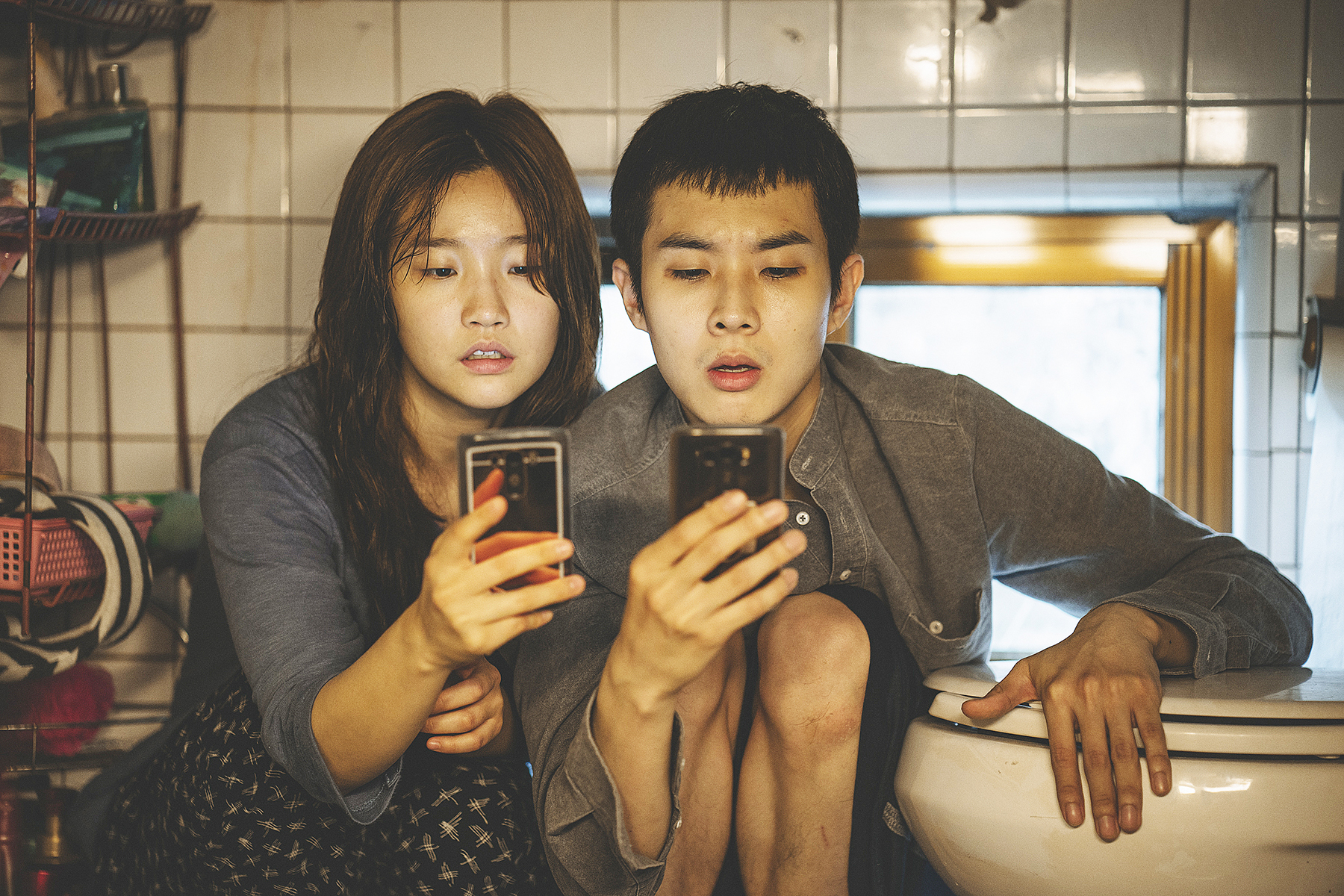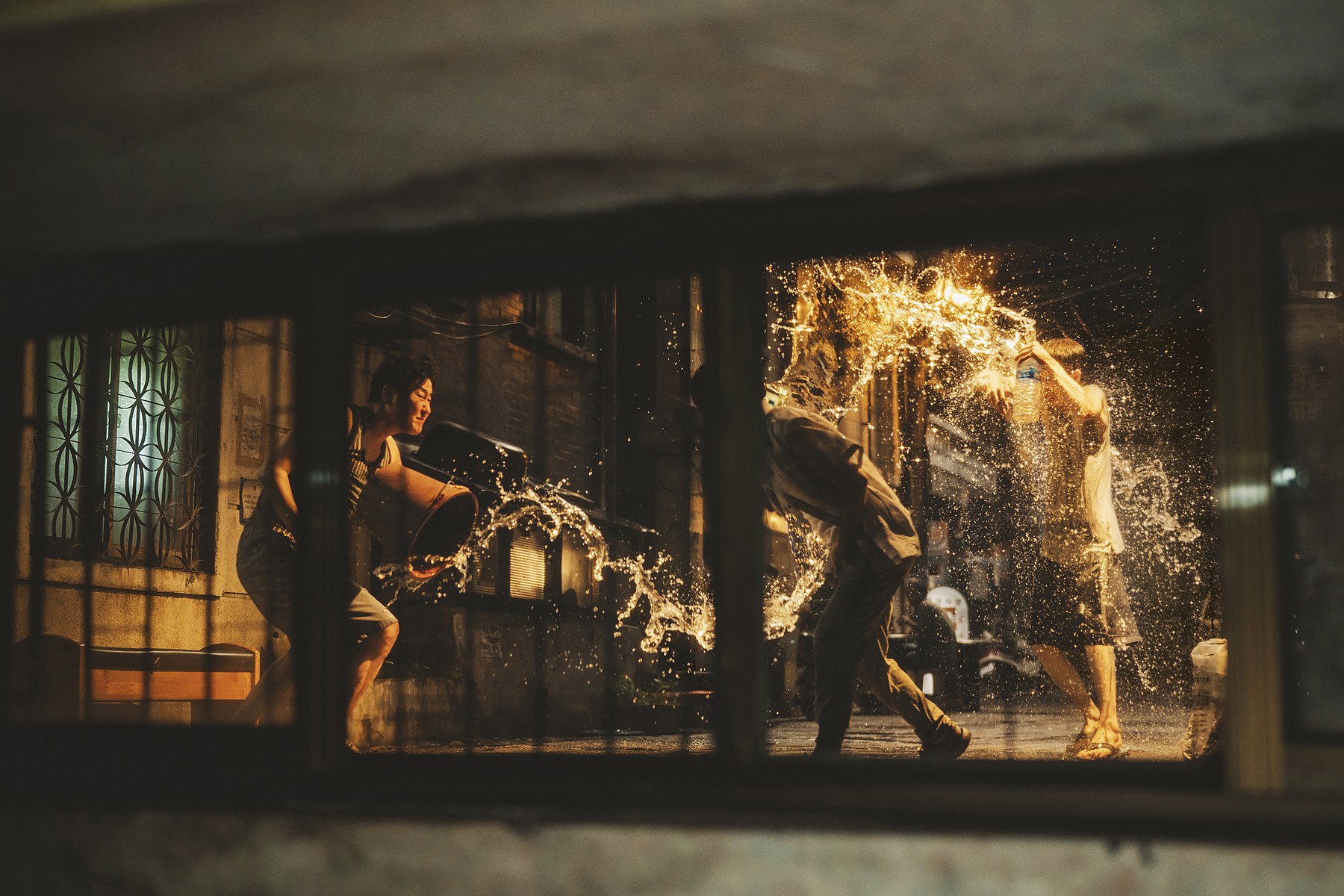Like Snowpiercer before it, Bong Joon-ho’s rage-fuelled satire Parasite puts class inequality squarely in its sights. This time however, the story is grounded in the real world and concerns a family of hustlers who will do anything to get by. There are other similarities with his twisted 2013 sci-fi. Joon-Ho’s use of contained spaces once again allows the director to navigate his subject matter very effectively.
The film opens in a basement flat, where a young man in his early twenties, Ki-woo (Choi Woo-shik), lives with his sister (Park So-dam), mother (Chang Hyae-jin) and father (Song Kang-ho). They are all scrambling to make money, with no permanent work. They fold pizza boxes for menial wages, spending the rest of their time preventing drunkards from urinating on their sliver of window, and hunting for nearby wi-fi that they can guess the passwords to for free internet. One day, Ki-woo is offered the chance to work as a tutor teaching English to Da-hye (Jung Ziso), the daughter of the wealthy Mr Park (Lee Sun-kyun). First, he has to convince Park’s housewife, the elegant but scatter-brained Yeon-kyo (Cho Yo-jeong). He wins her over easily but spies another opportunity after meeting their young son, Da-song (Jung Hyeon-jun), who is obsessed with Native Americans and painting. Ki-woo suggests his friend ‘Jessica’ - who is in reality his sister - as an art-therapist to help Da-song overcome a childhood trauma.
One day, Ki-woo is offered the chance to work as a tutor teaching English to Da-hye (Jung Ziso), the daughter of the wealthy Mr Park (Lee Sun-kyun). First, he has to convince Park’s housewife, the elegant but scatter-brained Yeon-kyo (Cho Yo-jeong). He wins her over easily but spies another opportunity after meeting their young son, Da-song (Jung Hyeon-jun), who is obsessed with Native Americans and painting. Ki-woo suggests his friend ‘Jessica’ - who is in reality his sister - as an art-therapist to help Da-song overcome a childhood trauma.
Before long, Ki-woo is scheming to remove the current live-in staff, replacing them with his father as Mr. Park’s driver, and his mother as the housekeeper. He also manages to win the affection of Yeon-kyo, who is crushing hard on her new tutor. In a carefully executed caper plot, Joon-ho cuts to the quick with his scalpel-sharp critique of how the other half live at the expense of the underclass. We know the game could be up for Ki-woo and his family at any moment, which generates both laughs and gasps of breath. Ki-woo’s father, Ki-taek, is continually humiliated by his new employers, who say he smells like "old radishes". The tension ratchets up, and there’s a growing sense that when the family get rumbled, it’s not going to be pretty.
We know the game could be up for Ki-woo and his family at any moment, which generates both laughs and gasps of breath. Ki-woo’s father, Ki-taek, is continually humiliated by his new employers, who say he smells like "old radishes". The tension ratchets up, and there’s a growing sense that when the family get rumbled, it’s not going to be pretty.
After the dust settles on the film’s bitter-sweet crescendo, we realise that there was never going to be any real escape from poverty for Ki-woo and his family. In a world as unfair as this one, the underdogs are always beneath the heels of rich. Hunger and destitution can sometimes be alleviated, but never fully escaped.















Add comment